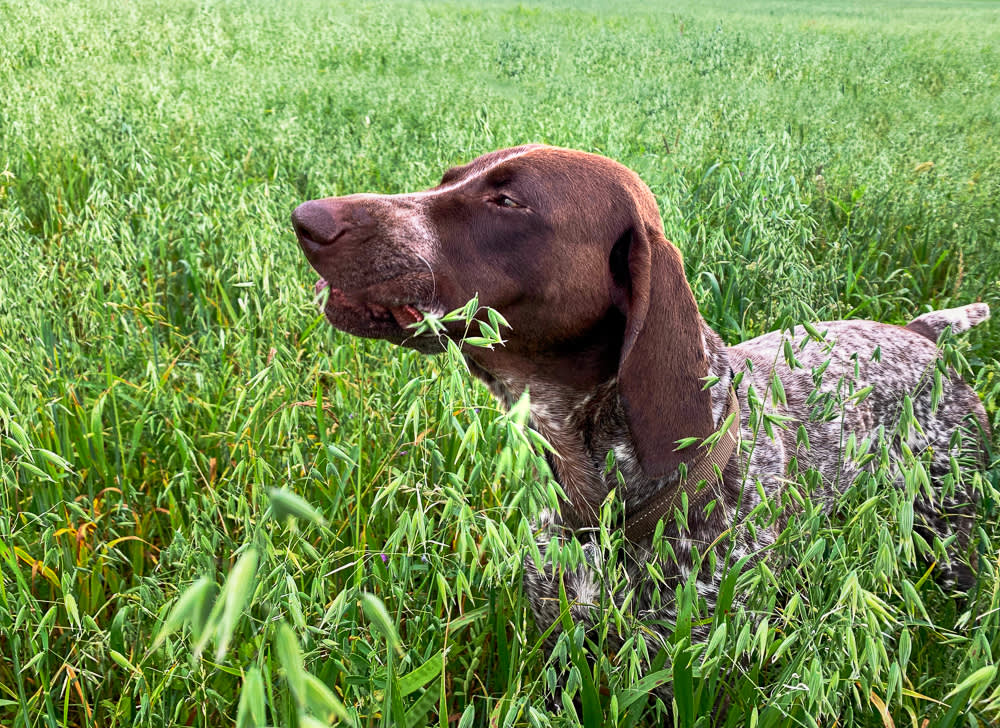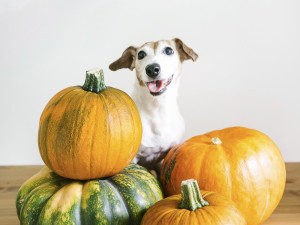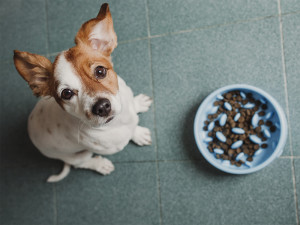Why Do Dogs Eat Grass?
When to worry about your pup’s grass consumption (and when it’s not a problem)

Share Article
What’s the deal with dogs acting like miniature lawn mowers? Munching on grass is pretty common for pups – in fact, more than 67% of people say that their dog eats grass on a weekly basis. The good news is that it’s common, it’s completely natural, and it’s generally considered safe by vets. But have you ever wondered why your dog does it?
Is eating grass a sign of sickness?
While many pet parents consider illness to be the most likely reason dogs eat grass, studiesopens in new tab don’t necessarily support this theory. In one study, only 8% of the respondents reported seeing signs of illness before their dog ate grass, and of that group, only 22% reported that their dog vomited after doing so.
In another studyopens in new tab, researchers who compared the grass-eating behaviours of dogs with mild gastrointestinal disturbances to those without concluded that a healthy dog was more likely to eat grass than one with an upset stomach. Still, dogs do sometimes display anxious behaviours prior to eating grass, seeming to seek out longer grasses and eating them quickly, which stimulates the vomiting reflex.
Or, is eating grass normal dog behaviour?
It’s possible that dogs eat grass to pass the time or to aid in digestion, or because – here’s a shocker – the grass tastes good. It’s likely that eating grass is a natural behaviour for dogs, one passed down from their wild ancestors, wolves. Grass may even provide dogs with a source of fibre. Speaking of fibre, it may be time to consider adding vegetables or high-quality sources of fibre to your dog’s diet.
How to keep your grass dog-friendly
Create a dog-safe space
Don’t use pesticides that contain toxic chemicals, or consider making a special dog-safe space in your garden.
Clean up poo
Reduce the risk of parasite transmission by making sure that your dog only eats grass in your own garden. Dispose of dog poo regularly, and consider making a pet-waste digester.
Beware of rough grasses
One caveat when it comes to grass consumption: long, rigid grasses with sharp edges have been known to cause throat abrasions. The oesophagus is sensitive and in some cases, dogs who eat this type of grass can experience a serious medical issue. If your dog is coughing or showing signs of irritation after eating grass, it’s best to contact your vet immediately.
And, as always, if you have any concerns whatsoever, especially if your dog’s grass-eating seems excessive, persists for long periods of time, or if they aren’t eating normally, it’s best to have them assessed by your vet.

Daniela Lopez
Daniela Lopez is a digital media specialist and long-time contributor to The Bark.
Related articles
![Red-haired woman holding sleeping dog in her lap on the bed]()
6 Reasons Your Dog Is Vomiting
And how to help them feel better fast
Can Dogs Eat Pumpkin?
Yep! The superfood is a delicious natural remedy for diarrhoea and constipation
![A dog with its eyes closed and mouth open sitting on a hardwood floor.]()
How to Help a Choking Dog and Prevent Choking in the First Place
Learn about the causes and what to do for a choking dog
![Puppy looks up while sitting next to a puzzle toy with food.]()
Tips to Slow Down a Dog Who Eats Too Fast
Eating fast is more than just unsightly – it’s potentially dangerous




